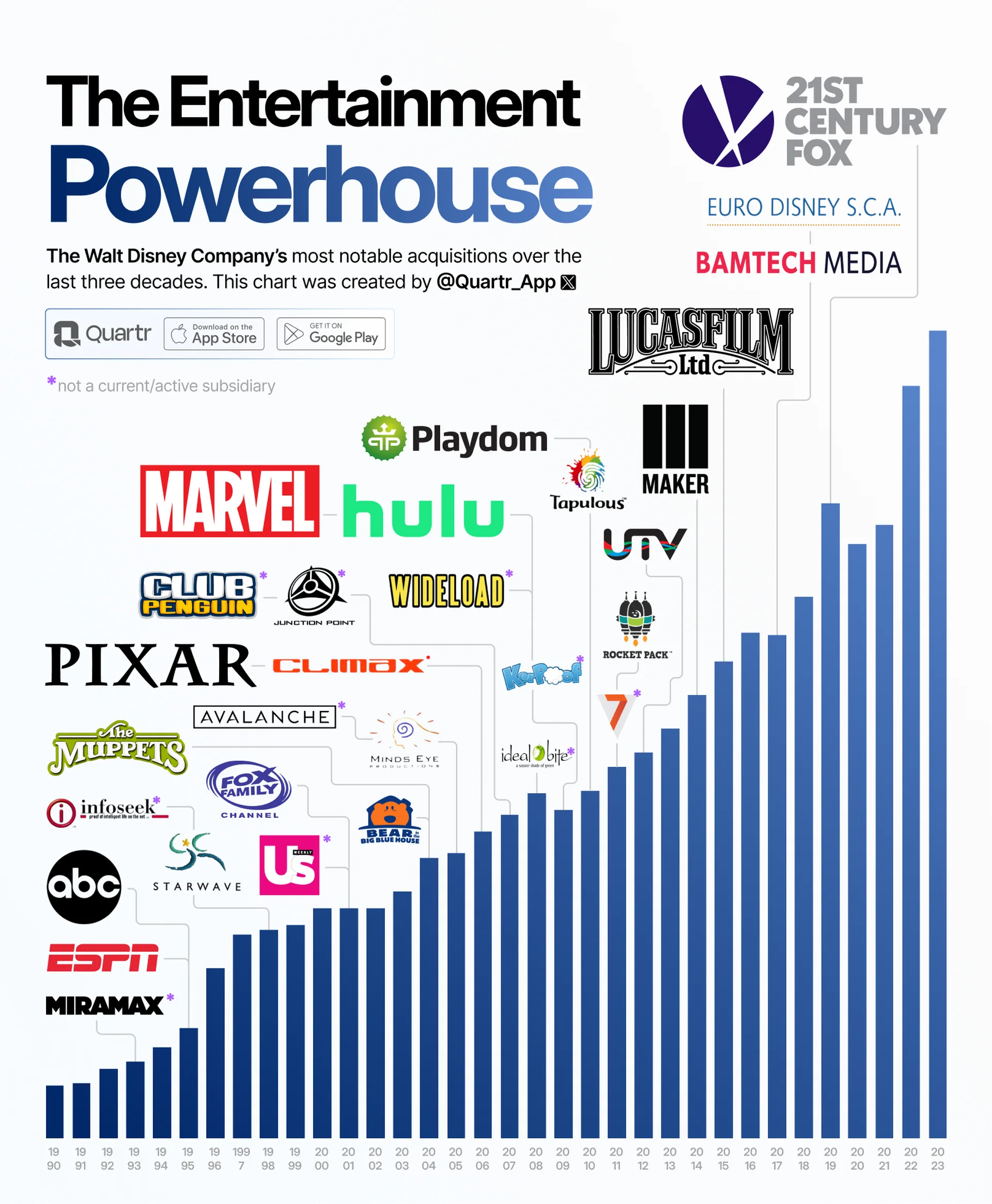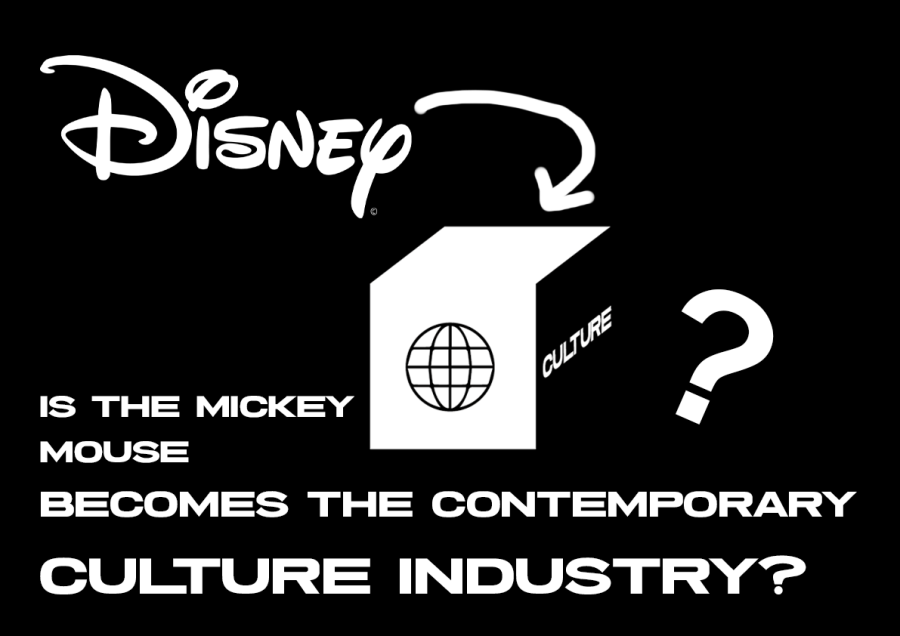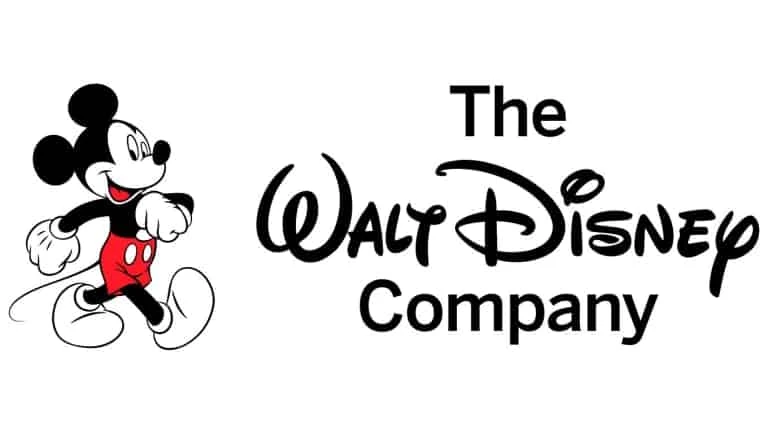
Culture Industry, a concept introduced by Max Horkheimer and Theodor W. Adorno in the “The Culture Industry: Enlightenment as Mass Deception.”
(Source: Shalon van Tine)
In their view, the “Culture Industry” concept means that the entertainment culture, such as film and radio, no longer needs to be known as art, but instead, it becomes a business or an industry of entertainment production for the sake of the directors’ revenue or can be known as capitalist (Horkheimer and Adorno, 2002). In capitalist societies, cultural products are manufactured like goods in a factory: mass-produced, low-cost entertainment designed to fuel consumerism and maximise profits (Shalon van Tine, 2020).
THE MICKEY MOUSE INDUSTRY
Disney, also known as The Walt Disney Company, is a notable multinational mass media and entertainment company based in the United States. The company from an animation company with the deep-rooted iconic Mickey Mouse as their brand icon to become a diverse colossal company that is involved in various industries, from animation and film production to amusement parks and countless sectors, providing a great contemporary example linked to the “Culture Industry” concept. Becoming the “Mickey Mouse Industry”.
COUNTLESS AND ONGOING ACQUISITIONS
Disney was founded in 1923 and started its acquisition since 1957. Up to now, the company has 33 acquisitions, and it is expected that Disney will continue to expand its industry by having more acquisitions in the future. For instance, Disney’s acquisition of 21st Century Fox was motivated by Disney’s plan to develop its streaming service, Disney+, highlighted by Disney’s CEO Bob Iger (Westberg, 2023).
It is worth mentioning that Disney+ is one of the online streaming services that people have to subscribe to get Disney+’s exclusive content, forming a “paying for entertainment” circumstance.

Besides 21st Century Fox, leading entertainment production companies such as Marvel (TV and film) and PIXAR (animation) are also part of Disney’s acquisitions, demonstrating that Disney ambitiously expanded its involvement in the media industry to maximise its revenue.
POLITICAL CORRECTNESS
Nowadays, the culture industry pushes art, packaged like political slogans, onto a reluctant public (Horkheimer and Adorno, 2002). Disney’s political correctness in their media products is always problematic for the public, such as LGBTQ elements in Lightyear and Strange World, the Black actress as Little Mermaid (Leparmentier, 2023) received a lot of backlashes from the public.
Although opinions on whether these issues are correct vary from person to person, it can be seen that Disney’s trying to be inclusive causes their “art” presentation to be far from its original meaning (aiming to entertain) and just to reach more diverse consumers and political correctness. The former CEO of Disney, Bob Iger, also said that he wants to “return to our roots” and hopes that Disney will focus on “entertainment”, not political “message” (Di Placido, 2023).
In conclusion, the diversification of Disney’s markets provokes consumerism eagerly for their entertainment production, making Disney a substantial contemporary “Culture Industry”.
References:
- (Image) https://www.shalonvantine.com/secondasfarce/2020/2/21/adorno-and-the-culture-industry
- Horkheimer, M. and Adorno, T.W. (2006) “The Culture Industry: Enlightenment as Mass Deception” in Media and cultural studies: keyworks. Malden: Blackwell Publishing.
- Shalon van Tine. (2020) ‘Adorno and the Culture Industry’, Shalon van Tine, 22 February. Available at: https://www.shalonvantine.com/secondasfarce/2020/2/21/adorno-and-the-culture-industry (Accessed: 17 October 2024).
- (Image) https://inspectorgadget.fandom.com/wiki/The_Walt_Disney_Company
- ‘The Walt Disney Company’ (no date) Wikipedia. Available at: https://en.wikipedia.org/wiki/The_Walt_Disney_Company (Accessed: 17 October 2024).
- Leparmentier, A. (2023) ‘Disney boss calls on creators to focus on ‘entertainment,’ not political ‘message”, Le Monde, 2 December. Available at: https://www.lemonde.fr/en/economy/article/2023/12/02/disney-boss-calls-on-creators-to-focus-on-entertainment-not-political-message_6306848_19.html (Accessed: 17 October 2024).
- Di Placido, D. (2023) The Many Controversies Of Disney’s ‘Snow White’ Remake, Explained. Available at: https://www.forbes.com/sites/danidiplacido/2023/08/22/the-many-controversies-of-disneys-snow-white-remake-explained/ (Accessed: 17 October 2024).



This blog shows us ample research and attractive analysis. The blog takes a deep look at Disney as the “culture industry” concept proposed by Horkheimer and Adorno, cleverly linking Disney’s approach to acquiring profits with the cultural industry’s idea of mass-producing entertainment. At the same time, the blogger’s exploration of Disney’s political correctness is also worth paying attention to, especially in terms of the possible impact on the “artistic” value of its works.
However, I believe that if blogger can further elaborate on the impact of the cultural industry on individual creativity and diversity in the media, the depth of this blog will be even greater. A good example of how the culture industry affects media creativity and diversity is Netflix’s impact on the British TV series Black Mirror. The early version of Black Mirror was shown on Channel 4 in the UK. It was known for its sharp criticism of society and had a unique British humor and rebellious spirit. However, when Netflix bought the production rights and invested a lot of money, the show’s style changed. It started to focus more on appealing to global audiences, and the stories became more in line with popular trends. This change weakened the show’s original critical edge. This phenomenon of “cultural industry” has helped TV shows make money with the help of big production companies. However, it has also weakened their original creativity.[Reference: Jones, E. (2020). Streaming and its Impact on UK Media.]
Finally, I have to mention that I really like the typography and style of this blog, they are not inferior to your research and analysis, this is a very good blog.
Best wishes!
A big thanks for your valuable feedback, Qianru! I initially wanted to talk in-depth about those “political correctness” works by Disney, such as The Little Mermaid live-action and Snow White live-action, on how Disney changed the original settings from the animation, just to fulfil the political messages, but I was trying to cover a lot in this blog, so I have to narrow down the details at the end. This is the point I need to reflect on writing blog posts next time: try not to cover too much and go straight to one point. Thank you for your advices! Thank you also for giving me positive feedback on my post’s typesetting as well; I really appreciated that! 😀
The page is very exquisite
Thank you 😀
You did a nice job connecting the concept of the culture industry to Disney’s evolution into a massive entertainment empire. I found your points about Disney’s acquisitions and how they fuel consumerism especially interesting. It’s a clear example of how Disney has moved from pure entertainment to a powerful business model focused on profit. I also liked how you touched on the role of political correctness in Disney’s content and how this shift has sparked different reactions. It raises a good question about whether Disney’s inclusivity efforts are genuine or just another way to reach more consumers.
Thank you Jiacheng!